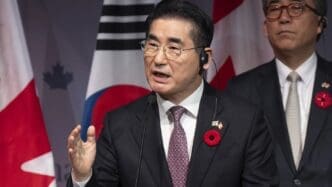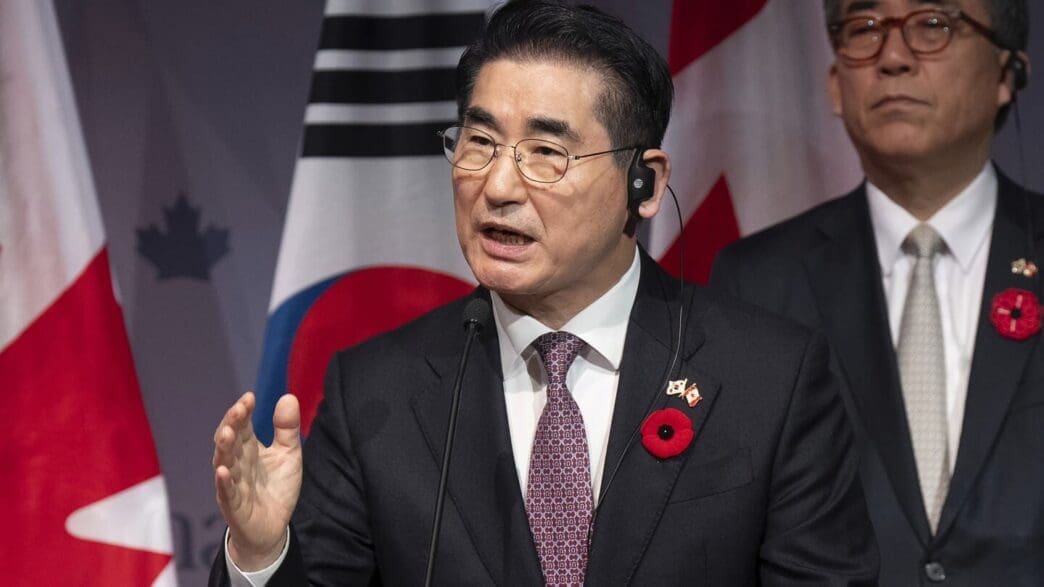South Korea’s political landscape was jolted as prosecutors detained a former defense minister for his alleged role in recommending martial law to President Yoon Suk Yeol. This unexpected development occurred after an opposition-led motion to impeach the president was narrowly avoided in parliament.
On Sunday, former Defense Minister Kim Yong Hyun voluntarily appeared at the Seoul prosecutors’ office, where he was detained and his mobile phone was confiscated. Reports from various South Korean media sources indicated that Kim was subsequently transferred to a detention center in Seoul while authorities conducted searches of his former office and residence.
The short-lived martial law imposed by President Yoon saw special forces troops surround the National Assembly building, accompanied by army helicopters flying overhead. This action was swiftly overturned by a unanimous parliamentary vote, forcing Yoon’s Cabinet to rescind the decree early Wednesday morning.
The main liberal opposition party, the Democratic Party, has accused the martial law imposition of being an unconstitutional act of rebellion or a coup, and has filed police complaints against multiple individuals, including both President Yoon and Kim Yong Hyun.
In a statement released by the Defense Ministry, Kim took responsibility for the troops’ actions during the martial law, asserting that they acted on his instructions. This admission only intensified focus on his involvement, particularly after Vice Defense Minister Kim Seon Ho told parliament that it was Kim Yong Hyun who ordered the troop deployment.
Prosecutor General Shim Woo Jung has publicly stated plans to investigate allegations of rebellion against President Yoon, suggesting that such charges, including those involving treason, could be prosecuted despite the president’s usual immunity.
Further complicating the matter, South Korea’s Defense Ministry has suspended three senior military commanders for their purported roles in the martial law decision, aligning with the opposition’s accusations of rebellion.
President Yoon issued an apology concerning the martial law decree, acknowledging his readiness to face legal and political responsibilities. He pledged to leave resolution of the ongoing political turbulence to his party, signaling an openness to step back from state affairs.
The public and governmental reactions to Yoon’s martial law declaration have intensified, reflecting deepening political discord within South Korea. A survey indicated significant public support for President Yoon’s impeachment, and despite internal disagreements, the ruling People Power Party remains opposed to such measures, likely due to fears of transferring presidency to liberal opposition.
Amid the turmoil, the People Power Party leader, Han Dong-hun, declared intentions to facilitate an early and orderly exit for Yoon from his presidency, although specifics remain undefined. This has sparked criticism from the Democratic Party, which argues that excluding the president from state affairs is unconstitutional.
Since President Yoon’s inauguration in 2022, his tenure has been plagued with low approval ratings and ongoing challenges in advancing his agenda through an opposition-dominated parliament. His recent martial law declaration, the first in over four decades in South Korea, has added to political instability and alarmed key international partners such as the United States and Japan.
The detention of former Defense Minister Kim Yong Hyun marks a significant development in South Korea’s ongoing political strife following President Yoon’s contentious martial law declaration. As investigations continue and political tensions rise, the path forward remains uncertain, highlighting the deep divisions within the country’s political landscape.
Source: Apnews








